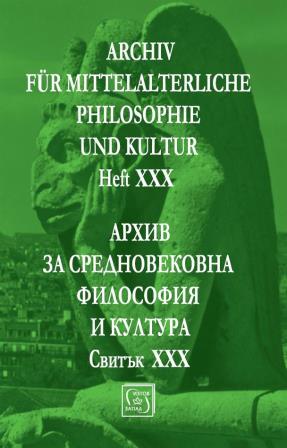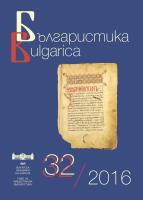
We kindly inform you that, as long as the subject affiliation of our 300.000+ articles is in progress, you might get unsufficient or no results on your third level or second level search. In this case, please broaden your search criteria.

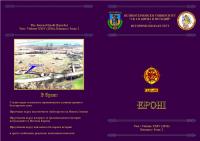
Byzantine society had very complex relations with the Islamic Eastern neighbors. Islam, to be sure, started and continued to be menace for Byzantium for the all long eighth centuries they used to coexist. However, Byzantine society needed a certain period of time to accept Islam as another religion, standing against Christianity in the East. After the first Byzantine revenge acts against Judaism a long tradition was formed with two main streams. The first of them envisaged Islam as a demoniac pseudo-religion (or anti-religion), the second being milder and ready to accept the Islamic neighbors not as a whole, but rather as different states, culturally not so different from Byzantium, with diplomacy playing role for keeping balance in the East. Thus, the Byzantine Real politik appeared as a phenomenon, what provoked crusaders to accuse Byzantium as being traitor to the Christian cause in the East. In that context should we pose the interesting incident at the end of Manuel I Komnenos’ reign (1143 – 1180). Both Church and society were provoked by the decision of the Emperor to lift up the anathemas against Allah from the trivial ritual of denouncing Islam. This formula was used generally by Muslims who converted to Christianity for whatever reason. Manuel sent twice tomoi for approval, provoking no less than an angry reaction in the Church and society. Thus, two main concepts made a stand against each other, a more traditional one and another, more practical, political, if not to say tolerant. For Manuel and his followers, who were not missing, as we know from Choniates, the doctrine of Muhammadwas just a deviation, untrue enough, of the unified Biblical tradition implying, anyhow, the existence of one and only God, Creator of the world. His opponents, Choniates being definitely among them, refused even to listen to such an interpretation. This radically harsh view on Islam corresponded with the anathemas against Islam in Choniates’ Treasure of Orthodoxy. Although in that particular case Choniates took side with the traditional opposition against the Emperor, in his History he used to be more delicate observer of Muslims, especially when comparing them with the Latins who became “champions” of his wrath.
More...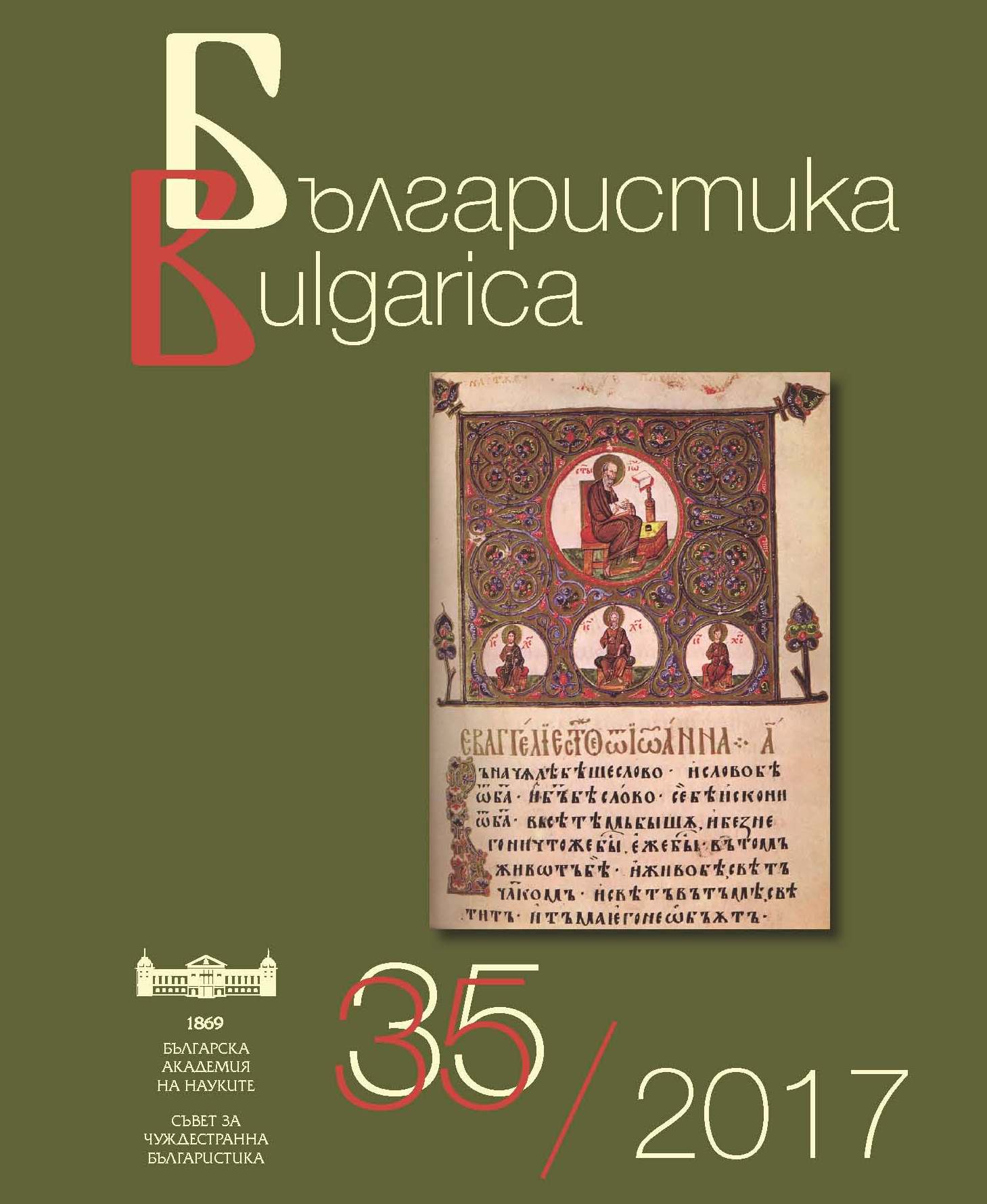
Content of the main Bulgarian scientific journals for the current year in linguistics, literature, history, folklore, ethnography, archaeology and art studies.
More...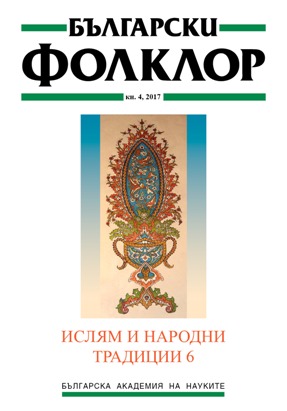
The paper presents the topics and contributions in the contemporary study of the culture of Muslims in Bulgaria. It discusses scientific publications with an anthropological focus from the post-1989 period, when the theme about ethnic and religious minorities in Bulgaria became particularly relevant. One of the main topics of research is the state policy towards Bulgarian Muslims in the 20th century, which receives a new interpretation and evaluation. The study of inter-confessional relationships remains one of the leading lines of research in the early 21st century, too. Numerous studies have been published on the various ethno-confessional groups – Bulgarian Turks (Sunni, Alevi), Roma, Tatars, Muslim Bulgarians. The publications analyze elements of their culture, issues of religion and identity. Ordinary people, their culture, their strategies for adaptation in the changing social environment became increasingly an object of study instead of political history. Changes occur also in the approach to research; attention is redirected from highlighting the common elements in the culture of Christians and Muslims to analyzing the specificities, the alternative memories, local culture and identity of Muslims in Bulgaria.
More...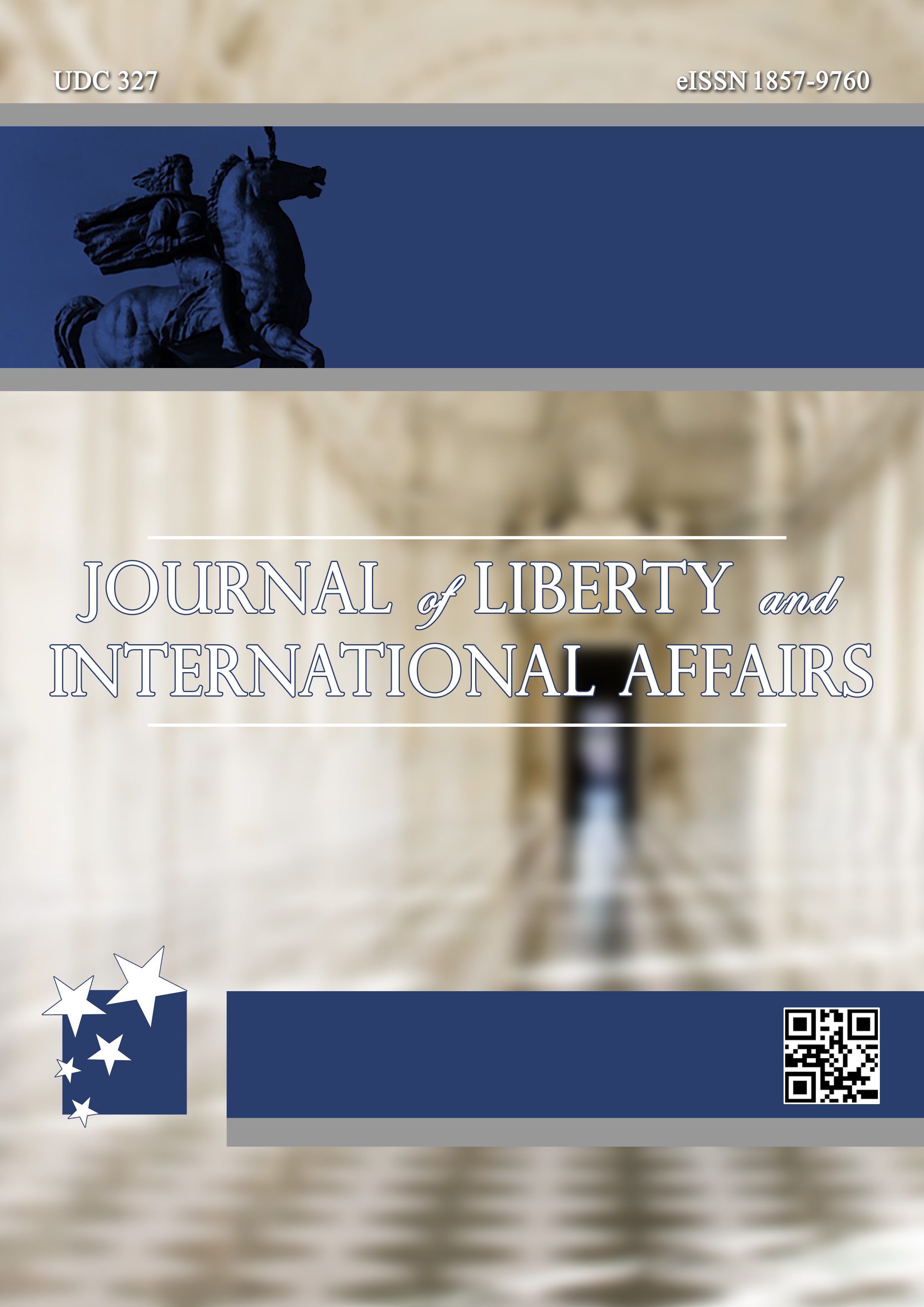
One of the essential postulates of political orientation and determination for the building of stable societies and a functioning political system in its content recognizes and imposes the need to examine the relation of relevant political actors to constitutionalism and human rights as concepts and preoccupations for any modern society. Also, constitutionalism and human rights and freedoms as its inseparable category manifest the political values and the corpus of essential and common political goals and commitments of a particular political community. Political Islam as an ideological political subject has its own sources and a valuable orientation framework through which prisms and perceptions can be interpreted or extracted by individual axiological determinants to certain issues. This paper analyzes exactly the relations of political Islam with constitutionalism and human rights, and similarly to the so-called framework it draws attention to the concepts of power, the mechanisms of control and compliance with the Sharia regulations. At the same time, the importance of human rights and freedoms in the Islamic narrative, their nature and scope, as well as the differences with the western established documents in this area are emphasized and analyzed.
More...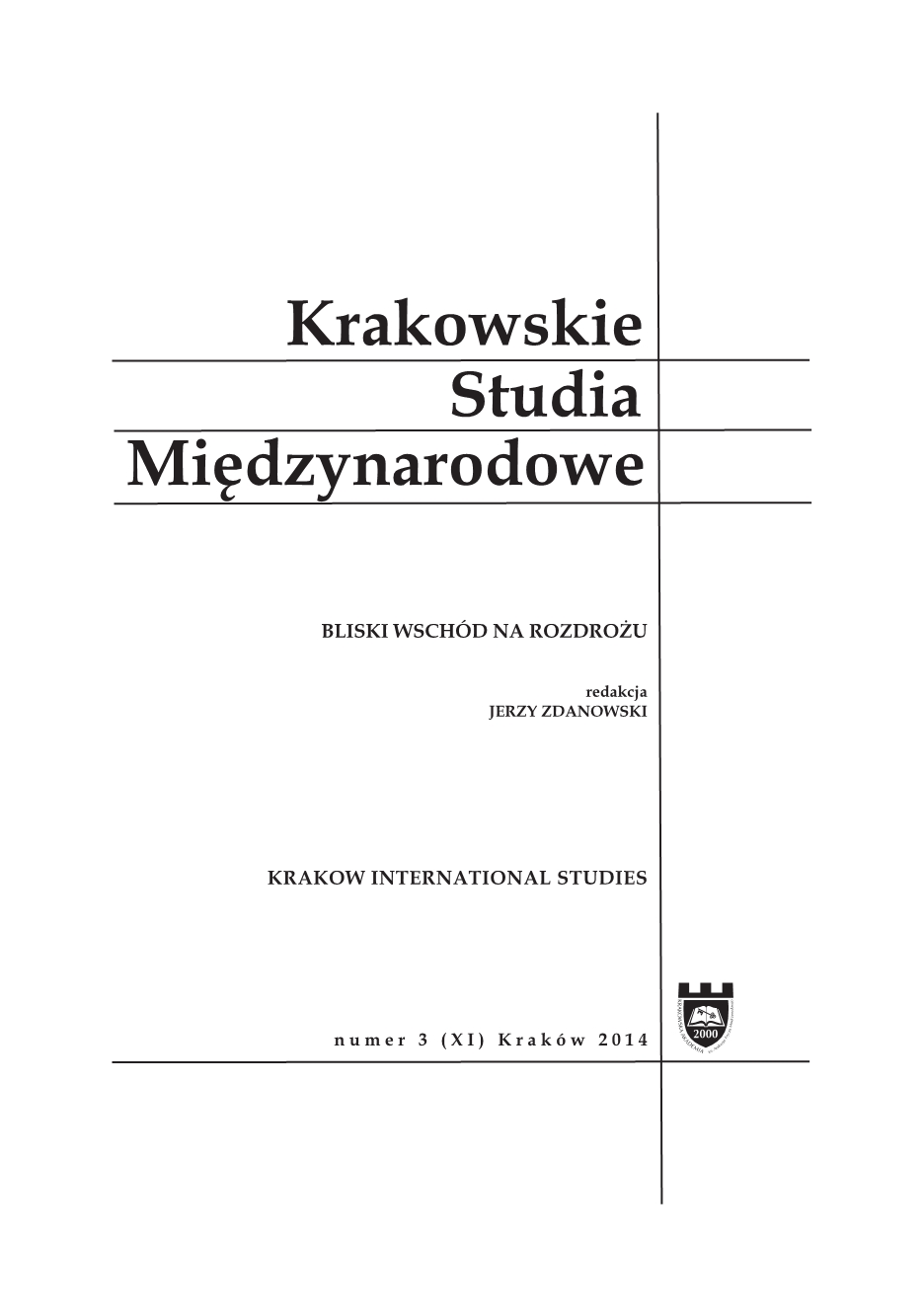
The article is an analysis of the impact of geopolitical changes and crises in the Middle East to the unity and stability of Lebanon in the XXI century. Disintegration of Lebanon is the result of the confrontation of conflicting interests of the Shiites and Sunnis after 2005, which overlap with the lines of divisions and regional tensions. The origin causes of the crisis in Lebanon are: weak consensus concluded in al-Ta’if in 1989 and the internationalization of ethnic confl ict in Lebanon. The factors above and geopolitical conditions linked country with four regional crises, and from their solutions depends the unity and stability of the Lebanese state in the future. These are: civil war in Syria, struggle of domination between Saudi Arabia and Iran, the problem of jihadists of Islamic State, and the Arab-Israeli conflict.
More...
The 2005 Israeli disengagement from the Gaza Strip dramatically changed the political situation of said territory. Due to the poor economic situation of its inhabitants, itself caused by years of Israeli policy of isolation, and general perception of being mistreated by the Israeli government, the power vacuum created in the wake of the withdrawal was filled by Hamas. The fundamentalists took control of the Gaza Strip in 2007, which caused the decision-makers in Tel Aviv to take radical measures to deal with the organization. A tight blockade of the Gaza Strip was introduced and while it may have curbed some of Hamas activities, it also worsened the living conditions of the inhabitants, creating a humanitarian crisis. Israeli policy has been criticized by many members of the international community. Moreover, Tel Aviv carried out several military operations, two of which (“Cast Lead” in 2008/2009 and “Protective Edge” in 2014) were characterized by significantly high numbers of civilian deaths. All of these actions, aimed at eliminating terrorists and improving Israeli citizens' security, seem to be rather short-sighted. Israeli policy only popularizes Hamas propaganda among Palestinians, therefore strengthening the organization and creating a vicious circle of misery and violence.
More...
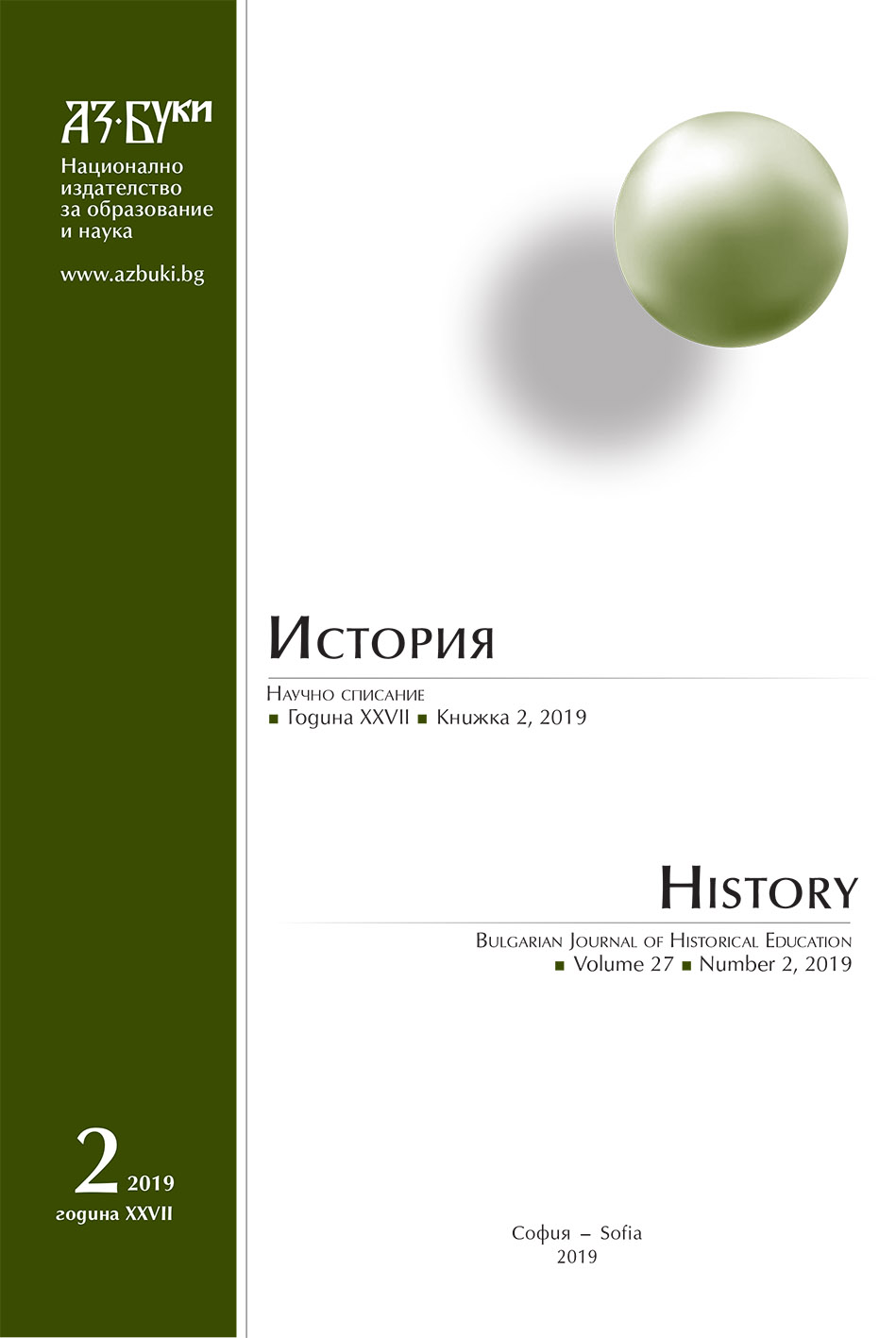
The medieval prisons are part of the Islamic governing system as in the Near East as in the Magreb. The sources about their organization and working methods are rare and straggling. Whatever, medieval Islamic prisons deserve an attention because they are connected with the general institutional environment in the Islamic lands. This article surveys the Islamic prisons in Sicily in the period 9th-11th century. It begins with a review of the emergence of the first Islamic prisons. This information serves as both forming initial impressions and a basis of the subsequent analysis. An important contribution of the article is the collected information from different by language, type and time historical sources. Their careful readings, coupled with a compare analysis, allow us to draw conclusions about the characteristics and location of the medieval Sicilian prisons. Comparison with the prisons in the other Islamic lands over the same historical period shows us common features. This makes it possible to conclude that the penal institutions on the island follow and work on a well-established model.
More...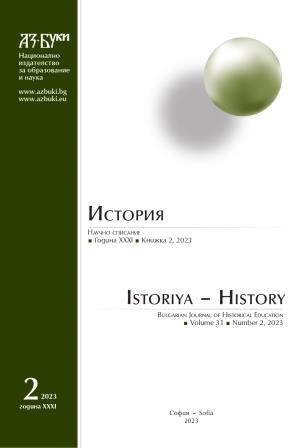
Ottoman historiography has focused on the construction activity of the Grand Vizier Köprülü Mehmed Pasha with reference to the castles he got built in Western Anatolia. Nevertheless, his endeavours to fortify the Black Sea coasts of the Ottoman Empire attracted less attention. This study seeks to describe and clarify Köprülü Mehmed Pasha’s defensive construction projects against Cossack naval raids in two separate zones of the Northern Black Sea: the Don and the Dnieper. This study relies on contemporary European reports, Ottoman archival material and related literature. It suggests that Köprülü Mehmed Pasha reinforced the protection of the Don estuary by commissioning the construction of a castle (Sedd-i İslam) on the one hand, and two self-standing towers on the other in 1660. As for the Dnieper, the pasha commanded the Doğangeçidi Castle’s construction in 1661, which was completed in 1662. Highlighting this dynamic building activity, the present essay suggests that Köprülü Mehmed Pasha’s invigoration of the northern frontiers of the Ottoman Empire should not be overshadowed by the conquests he is rather associated with.
More...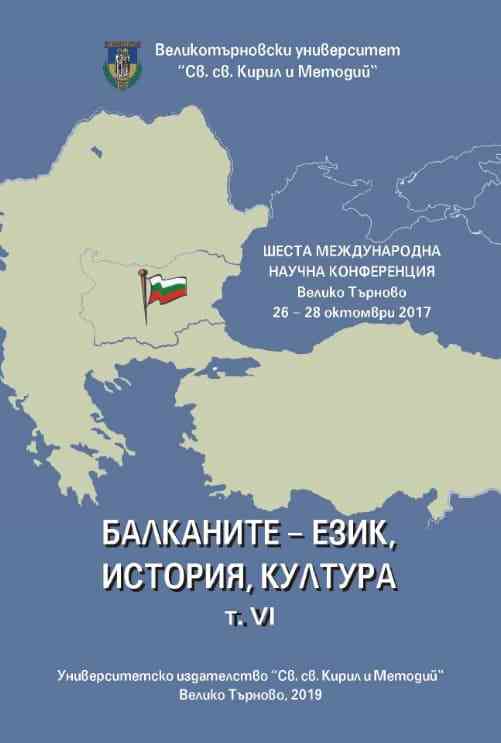
In the perspective of socialization and self-determination, a society builds its identity on the basis of common values, morality and ethics. Ethos has been identified on this basis and on the basis of national identity. The question is – how people, who profess different religion from the one officially recognized in a country, are being built as a person and socialized in the society. How is the social and national identity build on, if the idea of “the other”, the non-belonging to “us” is underpinned by education? How, children who are educated in the tradition of Islam, with its attributes: language, mentality and religion, create an authentic image of a citizens of one country? This research is based on assumptions and hypotheses, mainly related to the assertion of women professing Islam, in regions with mixed population in Bulgaria, like city of Djebel, and the small villages - Rogozche and Pripek. The emphasis is put on the upbringing of young Muslim girls, who are more restricted than boys in freedom to be what modernity offers as options for their personal self-realization. It is important to see how Islam allows to women to define themselves as a person with equal rights and obligations in the society. How the different influence of cultural identity affects young Muslim women, if its main characteristic is traditional upbringing? Her godliness consists of a long list of duties, which the girl is obliged to observe during all of her life. In regions with mixed population, the main problem with secular education is the language. Most children who attend secular school for the first time - do not know the Bulgarian language. The reason is that until this moment, children are familiar only with their “mother” language – in this case – Turkish. Some of them are used to visit muslim religious school, where they study Arab alphabet, which helps them to learn some Quranic prayers. So in this case - secular education is important and everyone needs to have access to it and to be adequate to communicate with the modern world on higher level. To imagine the everyday life of a woman grown according to the Islamic traditions and even to try to put ourselves in the place of the “other woman”, in this different occasion in the perspective of modernity, we should go in “her shoes”, to walk with her steps and to experience the other, “not ours” sense of reality. The education of Muslim women, being secular or religious, is very interesting topic. It is important to explore the changing lifestyle and daily practices of modern Muslim women in Bulgaria in the context of education, in the view of their religious formation and emancipation under the influence of family, environment, ethnicity and so on.
More...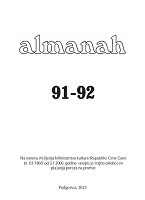
Reviews of: Esad Kočan, Naša Rijeka, Almanah, Podgorica, 2023.; Safet Hadrović Vrbički: “Orfeji Bihora - Pričam ti priču”, Centar za kulturu Petnjica, 2022.; Šaban Šarenkapić, Kuća jasina, BUKS, Novi Pazar, 2022.; Nasuprot zlu: Muslimanske rezolucije iz 1941.: Zajednička izjava iz 2015. Priredili: Enes Karić i Mustafa Spahić, izd. El-Kalem, Sarajevo 2019, str. 120.; Avdija Avdić: Otkidoh stručak do zemlje: devedeset lirskih narodnih pjesama iz Sandzaka Vlastito izdanje priređivača, Bijelo Polje 2011.; Adamir Jerković: “Magle nad Bosnom,” Almada, Sarajevo 2022.; Dr Sofija Kalezić, Rasplitanje duge: Antologija proznog stvaralaštva Bošnjakinja Crne Gore, Almanah, Podgorica, 2022.
More...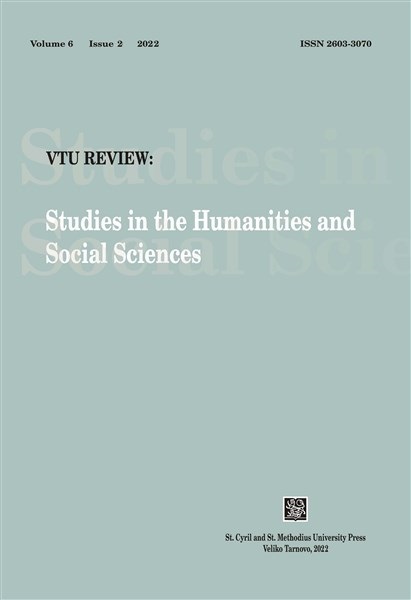
This article sheds light on the art of travel in the Islamic Maghreb, particularly with reference to diplomacy. While the traditional formation of travel came to be associated with an Islamic phenomenology, this paper argues that in the modern period the art of travel in the Islamic Maghreb underwent a paradigmatic shift in terms of its purposes and poetics. The first pertains to the expansion of its telos from an exclusively experiential religious horizon to the negotiation of various secular, particularly political undertakings.The second relates to the critical situatedness of travellers/diplomats as they navigated the ethical acuities of pursuing representational faithfulness while also doing their best not to hurt the sensibilities of the Moroccan Sultan or the interests of the state which they represented. Within the Moroccan ambassador Ahmad al-Kerdoudi’s travelogue about nineteenth-century Spain, the enterprise of intercultural mediation reflects the porousness of the Mediterranean world not only in the spheres of theology and culture but also in that of diplomacy.
More...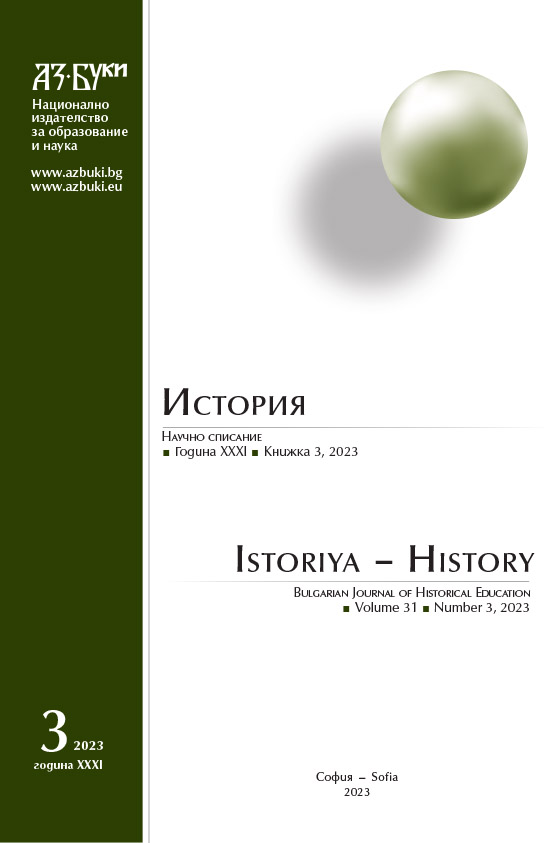
Popular preachers and storytellers (quṣṣāṣ; sg. qāṣṣ) appeared towards the middle of the first/seventh century and quickly became the earliest informal historians and exegetes in Islam. Before long, the Umayyad caliphs recognized the political impact of their sermons and institutionalized preaching and storytelling (qaṣaṣ) as a state office. Notwithstanding this fact, informal qaṣaṣ did not vanish altogether, sometimes giving voice to pious discontent with the ruling dynasty. In the present study, I demonstrate that during the Marwānid period qaṣaṣ was combined with judgeship and other official positions. A comparison with documentary sources suggests that during the same period the term qāḍī (judge) was not yet used, and it may have been retroactively grafted onto the Umayyad past by early ʿAbbāsid historical literature. Literary sources also imply the existence of regional hierarchies of quṣṣāṣ. During the second/eighth century, qaṣaṣ lost its significance to the professional collection and transmission of traditions (ḥadīth) for the needs of Islamic jurisprudence and exegesis. Ḥadīth transmitters and critics eventually came to dismiss the quṣṣāṣ with contempt and derision.
More...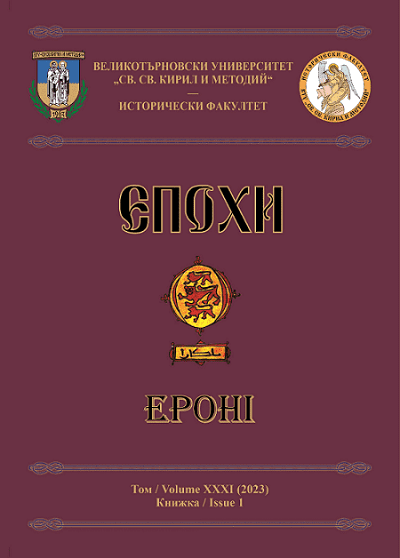
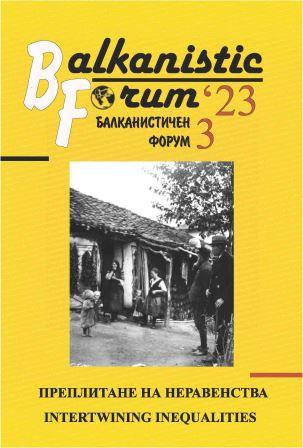
The imprisonment of Muslims in the Belene concentration camp, subsequently called forced settlement of a new residence, as the punitive measure in a more mitigated form, was applied against opponents of assimilation policy almost until the fall of communist power in Bulgaria. The article summarizes data on Turks and Pomaks who opposed the state decisions and repression, sent to the second division of the Belene concentration camp in the first two periods (1949-1953 and 1956-1959) of its history. Then we consider in more detail the imprisonment of Pomaks in relation of the change of names in the almost unexplored by this aspect 1960s and 1970s of the concentration camp. Finally, brief parallels are drawn between the internment in these two decades, and the last, largest forced internment of Turks (1984-1987) in the concentration camp in the name change campaign of 1984-1985 and the subsequent years of repression.
More...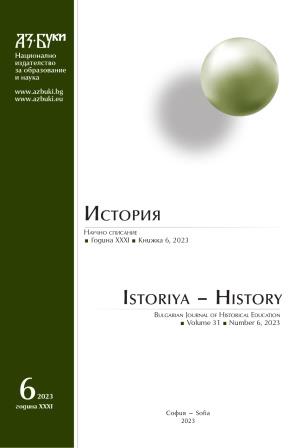
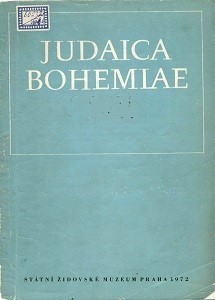
1. Le cycle: de conférences d’automne du Musée Juif d’Etat en 1971 2. Les études hébraïques à la Faculté des Lettres de l’Université Charles de Prague 3. Bedřich Nosek: Raimundus Martini (Pugio fidei), ses rapports avec le judaïsme et la philosophie islamiqu
More...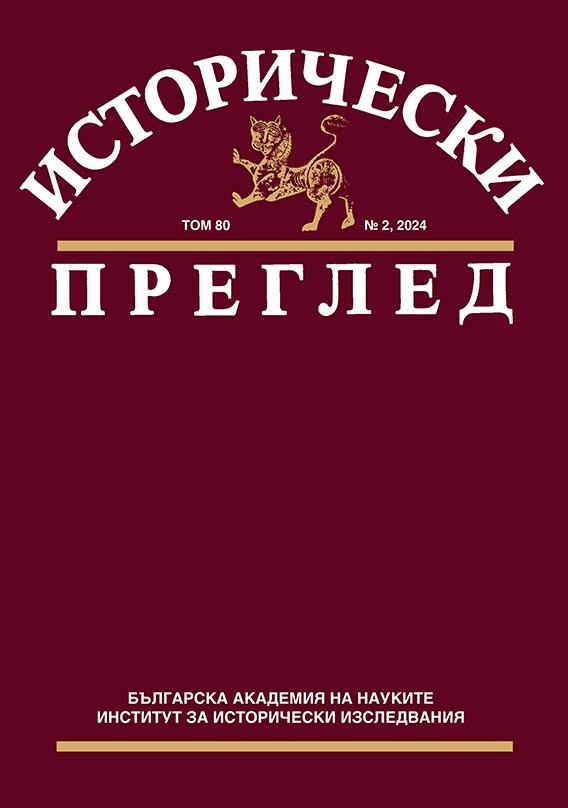
The group of Arabic medieval authors critiqued and condemned the practices of Islam among the Berber tribes in North Africa. This article delves into the medieval debate surrounding Berber Islam, exploring key themes and interpretations of Arab-Berber relations and the unique aspects of intra-religious dynamics in the medieval Islamic West. Through a comparative analysis, it examines medieval Arabic perspectives on the origins of the Berbers, the nature of Berber Islam, accusations of heterodoxy, and the perceived absence of urban culture. The essay also explores Arab authors’ perspectives on Berber rule during the Almoravid (1054–1147) and Almohad (1121–1269) periods. By examining polemical examples, it sheds light on the intricate political landscape of the Maghreb. A detailed investigation into the characteristics of Berber Islam provides insights into the Arab approach to governance in the region, as well as the successes and shortcomings thereof. The consistent negative portrayal of Berbers in Arabic narratives underscores underlying issues within the medieval Islamic politico-religious framework.
More...